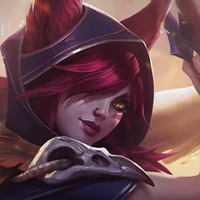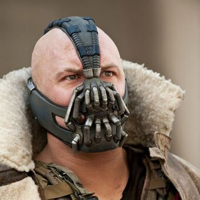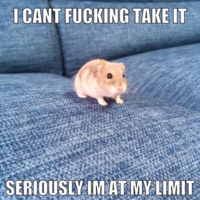Kazuya Mishima mbti kişilik türü
Kişilik
"Kazuya Mishima hangi kişilik türü? Kazuya Mishima, MBTI, 8w9 - sp/sx - 835 'de INTJ kişilik türüdür, RCOEI, RCOEI, büyük 5, LSI' dır."
“Pathetic.” ~Kazuya Mishima Many of you have voted Kazuya as being an INTJ, and I can agree about that. However, I disagree with one aspect of your votes, and that is his Enneagram type. To start, it would be good to discuss the Enneagram type 6, why it fits Kazuya, and then why Kazuya cannot be a Core 8, but before all, we need to define the two Enneagram types. 𝟏. 𝐓𝐡𝐞 𝐝𝐞𝐟𝐢𝐧𝐢𝐭𝐢𝐨𝐧 𝐨𝐟 𝐭𝐡𝐞 𝐄𝐧𝐧𝐞𝐚𝐠𝐫𝐚𝐦 𝟖: According to „The Enneagram Institute” Eights are self-confident, strong, and assertive. Protective, resourceful, straight-talking, and decisive, but can also be ego-centric and domineering. Eights feel they must control their environment, especially people, sometimes becoming confrontational and intimidating. Eights typically have problems with their tempers and with allowing themselves to be vulnerable. At their Best: self- mastering, they use their strength to improve others' lives, becoming heroic, magnanimous, and inspiring. Key Motivations: Want to be self-reliant, to prove their strength and resist weakness, to be important in their world, to dominate the environment, and to stay in control of their situation. At their worst: “Defying any attempt to control them, become completely ruthless, dictatorial, "might makes right." The criminal and outlaw, renegade, and con-artist. Hard-hearted, immoral and potentially violent. Develop delusional ideas about their power, invincibility, and ability to prevail: megalomania, feeling omnipotent, invulnerable. Recklessly over-extending self. If they get in danger, they may brutally destroy everything that has not conformed to their will rather than surrender to anyone else. Vengeful, barbaric, murderous. Sociopathic tendencies. Generally corresponds to the Antisocial Personality Disorder.” Also Type Eight is linked with "lust" or "excess," which refers to an intense desire for intensity, control, and power. Eights are self-confident and strong, and they fear being controlled or harmed by others. 𝟐. 𝐖𝐡𝐲 𝐍𝐈 𝐝𝐨𝐦𝐬 𝐜𝐚𝐧'𝐭 𝐛𝐞 𝐄𝐧𝐧𝐞𝐚𝐠𝐫𝐚𝐦 𝟖: Type 8s are aggressive, overly direct, and prefer the present instead of the past/future. The significant discrepancy is how 8s hate losing their freedom and have significant problems with following rules and authority from a young age. They are also extremely materialistic. INTJs' Se will never be that dominant. An inferior function will NEVER be stronger than dom and aux. Te is similar to Fe and adapts, while 8s don't like adapting. The inferior function can never be stronger than Aux, and 8 is almost an anti-intuitive function. So INTJs can’t be an 8 due to Ni Dom. Read Naranjo's works on 8s. Some people may say that the Enneagram cannot be combined with MBTI/Carl Jung. If that's the case, can you present an INFP 8w7 or an ENTP 1w2? No? Well, it can't be compatible, because Enneagram and MBTI are interconnected. 𝟑. 𝐓𝐡𝐞 𝐝𝐞𝐟𝐢𝐧𝐢𝐭𝐢𝐨𝐧 𝐨𝐟 𝐭𝐡𝐞 𝐄𝐧𝐧𝐞𝐚𝐠𝐫𝐚𝐦 𝟔: Sixes are reliable, hard-working, responsible, and trustworthy. Excellent "troubleshooters," they foresee problems and foster cooperation, but can also become defensive, evasive, and anxious—running on stress while complaining about it. They can be cautious and indecisive, but also reactive, defiant and rebellious. They typically have problems with self-doubt and suspicion. Key Motivations: Want to have security, to feel supported by others, to have certitude and reassurance, to test the attitudes of others toward them, to fight against anxiety and insecurity. At their worst: “Fearing that they have ruined their security, they become panicky, volatile, and self-disparaging with acute inferiority feelings. Seeing themselves as defenseless, they seek out a stronger authority or belief to resolve all problems. Highly divisive, disparaging and berating others. Feeling persecuted, that others are "out to get them," they lash-out and act irrationally, bringing about what they fear. Fanaticism, violence. Hysterical, and seeking to escape punishment, they become self-destructive and suicidal. Alcoholism, drug overdoses, self-abasing behavior. Generally corresponds to the Passive-Aggressive and Paranoid personality disorders. Type 6 represents "fear" or "anxiety." Sixes are concerned with security and can be either phobic or counter-phobic, often struggling with fear and anxiety about the future and their ability to handle it. [1/3]
Biyografi
DORYAH!!!
Kişilik correlate

Reina Mishima

Jin Kazama

Emilie de Rochefort

Heihachi Mishima

Nina Williams

Asuka Kazama

Ling Xiaoyu

Lee Chaolan















